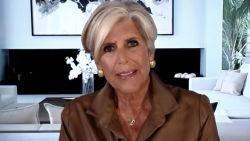China is already the largest and most important market for the American auto industry. Removing tariffs on American cars exported to China isn’t that big a deal.
Almost all automakers with plants in the United States already have factories in China, too. Automakers prefer to build near to where they sell vehicles. Building cars in China to serve Chinese buyers, for example, is cheaper than building them in the United States and shipping them overseas.
So automakers probably won’t export significantly more cars to China from American plants if and when China removes its tariff on auto imports. President Donald Trump announced late Sunday night that China would remove its 40% tariff on American cars. The details are not yet known. Chinese government officials would not comment on the deal.
But bringing down China’s tariffs won’t save GM’s plants in Lordstown, Ohio, or in Detroit, which the company plans to close. It also probably won’t help boost automakers’ at plants that are slated to remain open.
“Will this help GM, Fiat Chrysler and Ford? Not really,” said auto analyst Rebecca Lindland. “It’s unlikely we’ll see a significant change in production and import strategies from manufacturers.”
With only a few exceptions, GM operates with a “‘build where you sell’ philosophy, said Jeannine Ginivan, a company spokeswoman. spokesperson for GM, when asked about the Chinese tariffs. Other automakers, including BMW and Tesla, did not comment on the president’s announcement.
Tesla is the only American automaker without a Chinese plant that is looking to expand into China. It announced plans earlier this year for a plant that will cost it at least $2 billion, but it remains years away from opening. Lowering the tariffs will make Tesla more competitive in China. The company had to increase the price of the Model S in China by about $20,000 earlier this year.
European automakers with plants in the United States could also be winners from lower tariffs. Some European automakers ship cars to China from the United States. China imposes tariffs on vehicles built in the United States, whether it’s a foreign-based automaker or US automaker.
For example, BMW’s largest plant in the world is in South Carolina. It exports SUVs from that plant all over the world. In 2017 it shipped about 81,000 X series SUVs to China, or more than 20% of its production. In July, it increased the price of those cars by 4% to 7% for Chinese customers to cover some of the cost of the tariffs.
Even before a deal to remove the tariffs, BMW is in the process of expanding its South Carolina plant, adding about 1,000 jobs in order to increase output. And the company said last week it was considering adding a US engine plant to supply South Carolina and another plant soon to open in Mexico.
Still, China’s tariffs have hurt exports from US auto plants. The value of US passenger car exports to China has fallen by $2.4 billion, or 30%, over the course of the first nine months of the year.
Part of that could be because of slowing Chinese auto sales. Yet overall sales of American cars in China – including those made in China – are down only about 1% so far this year.






















